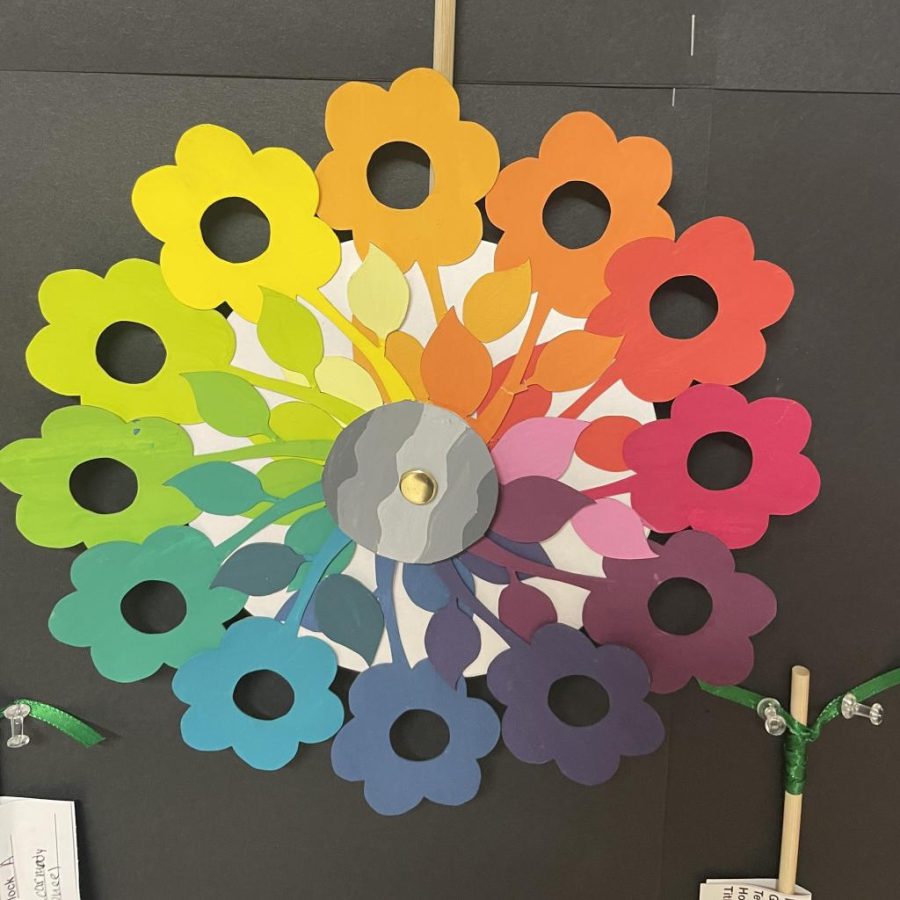Pride Month Spotlight: Youth Mental Health
7th Grader Lily Shepard’s “Flower Pinwheel” was featured during this year’s Spring for the Arts
June 13, 2023
The conversation about mental health is undeniably valuable for teenagers, especially during Pride Month. A study conducted by the University of Michigan between 2021-2022 determined that 44% of American students showed symptoms of depression. Depression is a chemical imbalance, and while it can be caused by genetics, there are other leading factors. Family issues and a negative mindset can lead to depression; members of the LGBTQ+ community are also at a higher risk.
There was a quote floating around the internet last year by novelist Richard Kadrey: “When you’re born into a burning house, you think the whole world is on fire, but it’s not.” It’s crucial for our generation––the future generation of leaders––to recognize the mental health crisis that has been ignored for decades within this system.
The United Nations International Children’s Emergency Fund rated the United States 31 out of 36 in the Organization for Economic Cooperation and Development (OECD) countries for children’s well-being.
Currently, over 391,000 children in the United States are in the foster system––and 80% of those children have significant mental health issues. In the system, having an optimistic view of life is hard when all the odds are against you. Those in the system are more likely to end up in prison; in fact, one in every five of these children end up being homeless by 18 years old, and while 66% of children outside the system earn a college degree, less than 3% of former foster children earn a college degree.
Another leading factor of depression is the mindset attributed to people rejecting treatment.
Over 60% of people with mental illness don’t get treatment. There’s a stigma around therapy due to the lack of understanding of mental health. When people go to the doctor, they don’t reject treatment for their physical health but are more reluctant to accept treatment for mental health.
Everyone has mental health. It’s the question of whether or not your mental health is healthy or needs help. If you wouldn’t reject treatment for a broken bone, why would you reject treatment for your brain?
Having an optimistic viewpoint can be challenging during times of struggle. Henry David Thoreau said, “It’s not what you look at that matters; it’s what you see.” Perspective in the world around you is valuable, and if you change your perspective from positive to negative, you’re already on the right track.
The goal of having an optimistic view is not about discrediting your feelings at that moment. It’s about having faith in the future. In his young adult novel Turtles All the Way Down, John Green wrote about mental health: “There is hope even when your brain tells you there isn’t.”
During Pride Month, extra attention should be given to mental health within the LGBTQ+ community. The 2022 Trevor Project, a national survey on LGBTQ youth mental health, found that 45% of the LGBTQ community seriously considered suicide in that past year.
Recently, ten states have passed laws banning gender-affirming care for minors. With gender-affirming care, suicide rates were lowered by 73%. If there were a drug that would reduce suicide rates by 73%, it would be considered a miracle, so why are we banning this care for our youth?
